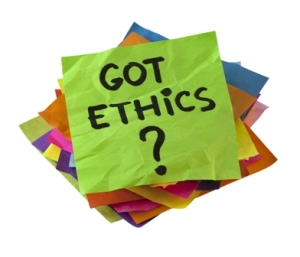When we see an opportunity for a client, it’s in our nature to seize it. It’s our job, after all. It’s also the job of public relations professionals to advocate for clients and we should have the sense to judge what opportunities are appropriate and when they might be crossing a line. Too often companies and organizations are chastised for taking advantage of a current event, pop culture happening or even a tragedy to get their brand attention.
There are plenty of examples where companies took their publicity a step too far after a tragedy or negative occurrence, both accidentally and intentionally.
- Malaysia Airlines promoted a Bucket List contest, asking consumers what places they’d like to see before they die. This came after the tragic disappearance of Flight 370 and after Flight 17 was shot down over Ukraine.
- DiGiorno hopped on the hashtag bandwagon a little too quickly after the NFL suspended Ray Rice for abusing his wife. Thousands of Twitter users took to using #WhyIStayed to share their abuse stories and DiGiorno didn’t check the context of the tag before shooting out a response of ‘you had pizza’.
- MSN’s Biggest PR Blunders of 2014 list rounds up more specifics pretty well.
These companies promptly issued apologies and/or made corrections to their public relations and social media efforts. However, it’s always better not to have to ask for forgiveness because you didn’t stray off the path of ethics in the first place.
The lesson your parents always tried to burn into your brain of “think before you speak” couldn’t be more applicable in our world. In this case it’s more so “think before you act and set your client up for some serious negative backlash”. Trust me, even though you might be receiving dozens of emails asking why they aren’t in the news, asking to get them some press, they would much rather sit back and wait for the right story than jump on board with the wrong one.
How can you be sure to stay ethical and not make the mistakes of these well-known, previously well-respected brands?
- Trust your instincts
You know right from wrong. If you are feeling a little wary about pitching a story because you feel it might be exploitive, you’re probably right. It’s not worth potentially ruining your reputation with a journalist and painting your client in a bad light. - Ask a mentor
That’s what they’re there for. If you’ve hit a point where you’re just not sure whether you should go with a story or not, just ask. Chances are you’ll be respected for checking in and you’ll get a good conversation out of it where you might learn a few things. - Explain
So you decided to do the ethical thing and your client isn’t pleased. Instead of getting defensive, walk them through your thought process. Create a case study to show them the negative ramifications of pouncing on a story in an exploitive way. This is what they’re paying you for, after all.
This isn’t to say there won’t be instances where your client’s services, expert advice or products shouldn’t be talked about following a sad event or a bad situation. If the organization offers counseling, for example, they should surely be getting the word out after a tragedy; because what they are doing will help others. There are absolutely ways for brands, organizations and companies to respond to situations appropriately and in a non-exploitive manner. The important thing for public relations professionals to do is make the judgment call.
There are some things you can’t (and shouldn’t) try to put a spin on. Exploiting a sad or bad situation purely for client gain is wrong. Knowing and acknowledging that is what separates the experts from those just trying to climb the ladder.
London Faust is an Account Representative at Bellevue Communications Group, a public relations firm specializing in media relations, crisis communications and issue management. She is forever #TempleMade, class of 2014. Follow her personal ramblings on Twitter at @londonfaust or her professional doings at @BellevuePRPhl.

